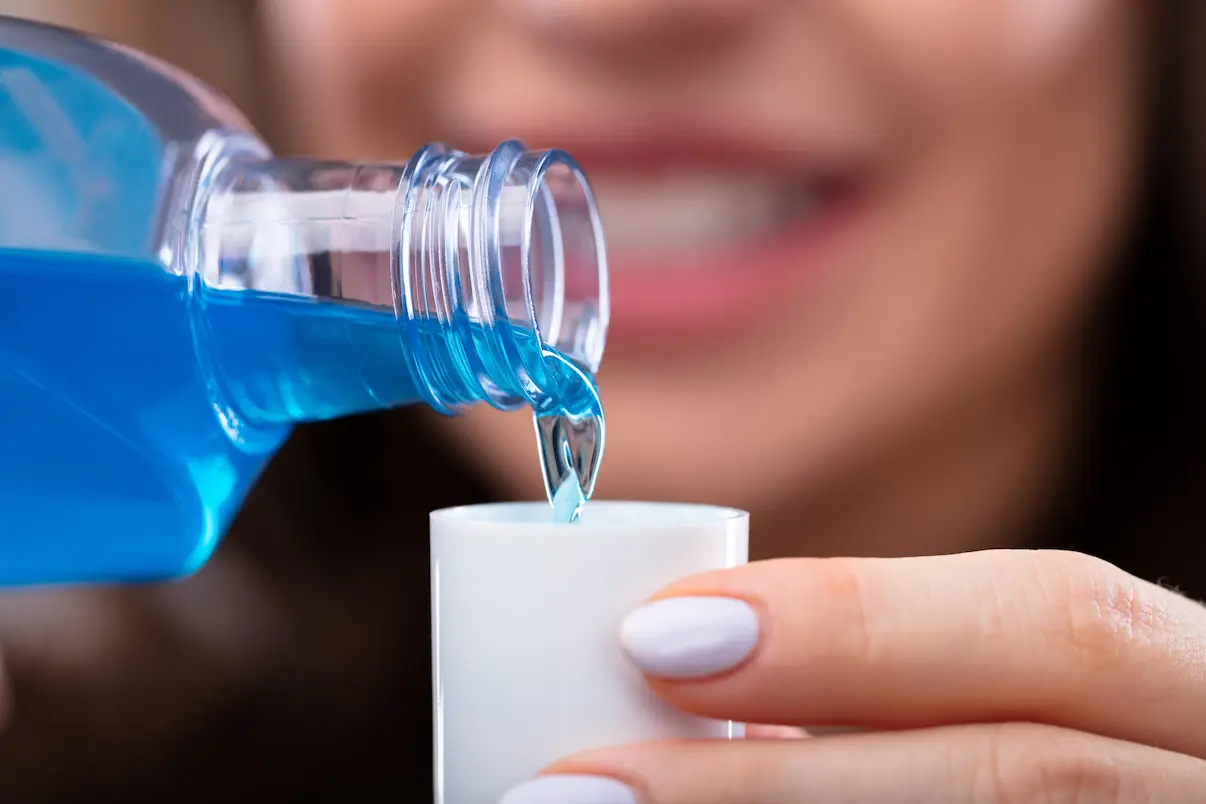Submit Request ...
-
Forums
Fluoride oral rinses - is it good or bad?

Do you think mouth rinses can provide just a fresh breath or a whiter smile? The fact is, mouth rinses, especially the ones containing fluoride, can provide more than that. Though mouth rinses are not a replacement for daily brushing and flossing, their usage offers various oral health benefits and can be a helpful addition to your daily oral hygiene routine.
For instance, fluoride mouth rinse can help strengthen tooth enamel and provide an extra level of protection for the teeth. Besides, they have the advantage of being able to reach those areas in the mouth that are not easily accessed by a toothbrush or dental floss.
What Is Fluoride Mouth Rinse?
mouthwash contains fluoride, a mineral known to strengthen enamel and reduce tooth decay and cavities. Fluoride, besides protecting tooth enamel against acid attacks, also repairs the early stages of tooth decay.
Accumulation of plaque on teeth can lead to the loss of minerals on the teeth because of the presence of acids in the plaque. This can result in cavities over time. When we consume sugary food, this acid will be increased. When we rinse our mouth with fluoride-containing mouthwash, the fluoride gets absorbed into the enamel and remineralizes and replenishes the lost calcium and phosphorus that keep the teeth strong.
Advantages of fluoride mouthwash
Fluoride mouthwash can help reduce cavities by reducing the cavitation and demineralization of the teeth. Fluoride rinse mouthwash typically contains about 0.05 percent of Sodium Fluoride, which has the capability to protect against tooth decay.
Fluoride mouth rinses help the body to make better use of minerals such as calcium and phosphate. The teeth reabsorb these minerals to restore weak tooth enamel.
Fluoride mouth rinses join into the tooth structure during the development of the teeth to strengthen its enamel, making them less exposed to bacteria and cavities for life.
Fluoride mouthwashes can slow down or even reverse the development of cavities during its earlier stage by harming bacteria that cause cavities.
In short, fluoride mouth rinses can help to:
1. Reduce the formation of cavities

2. Slow the growth of cavities
3. Delay or eliminate the need for expensive dental work
By preventing cavities and slowing the growth of bacteria, a fluoride mouth rinse also help to:
✓ Prevent gum disease - gingivitis and periodontitis.
✓ Reduce tooth pain.
✓ Prevent the early loss of teeth.
What happens when you overuse mouthwash?
Alcohol is one of the main ingredients used in every mouthwash. It helps kill harmful bacteria in the mouth, but its overuse can cause harm to gums, tongue, and inner cheeks. Alcohol also absorbs the moisture and makes your mouth dry, leading to cracks and swellings. Overusing fluoride mouthwash can lead to serious health issues, including tooth discoloration, allergies, irritation, etc. High doses of fluoride can be toxic, though this is unusual.
It is recommended that mouthwash be used no more than twice daily after brushing and flossing. It is not recommended to use an oral rinse if you have an open sore in your mouth. Dousing oral sores with fluoride and antiseptics can damage your oral health. Use your oral rinse only as directed.
It is not recommended to give at-home fluoride rinses to children under 6 years old as they may swallow too much fluoride.
In short, mouthwash helps improve oral health and makes your breath fresh. However, it is better to use an alcohol-free mouth rinse. If you have gum or cavity issues, it is better to consult your dentist to get the best recommendation on the right mouthwash.
Articles are reviewed by Dr. Moein Taghvi. This information is for educational purposes only. This content is not intended to be a substitute for professional medical advice, diagnosis or treatment. Always seek the advice of your dentist, physician or other qualified healthcare provider.
Please let us know what you think!